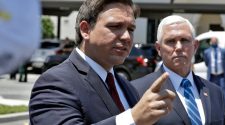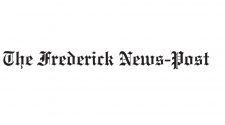The Treasury Department will add President Trump’s signature to stimulus checks.
President Trump’s signature will appear on the economic stimulus checks that will be mailed to millions of Americans beginning next month, the Treasury Department confirmed on Tuesday.
The decision to have Mr. Trump’s name appear on the checks, which is a break in protocol, was made by the Treasury Department after Mr. Trump suggested the idea to Treasury Secretary Steven Mnuchin, according to a Treasury official. The president’s name will appear on the “memo” section of the check because Mr. Trump is not legally authorized to sign such disbursements.
The decision to have Mr. Trump’s signature on the checks was first reported by The Washington Post, which said the move would result in a delay for getting the checks out the door because of technology changes needed to include the new signature.
Representatives for the I.R.S. and the White House referred questions to the Treasury Department. A Treasury official, speaking on the condition of anonymity, denied that the decision would delay the disbursement of the checks, and said that they would be mailed beginning next week.
Many Americans may not see the president’s signature. Those who are eligible for stimulus payments and have provided their banking information to the I.R.S. will receive the money through direct deposit.
Markets in the Asia-Pacific region failed to build on gains from Wall Street in early global trading on Wednesday, with investors anticipating a stream of bad news from companies reporting their financial results for the first three months of the year.
Japanese shares were down less than 1 percent, as investors there failed to match a 3.1 percent rally in the S&P 500 in the United States on Tuesday. Futures markets were predicting lower openings in Europe and on Wall Street as well.
Markets rose on Tuesday on a steady stream of news about progress in fighting the coronavirus in hard-hit places like New York, while authorities in some European countries are discussing when some normal business and social activity might resume. Still, data expected later Wednesday was expected to show a drop in retail sales in March. The International Monetary Fund on Tuesday also released estimates showing shrinking economies in much of the world this year.
The bond market was mixed, as prices for 10-year U.S. Treasury bonds fell while the 30-year bond rose. Oil prices rose on further hopes of the petroleum market steadying.
In Japan, the Nikkei 225 index was down 0.1 percent at midday. Hong Kong’s Hang Seng index was down 0.1 percent, while mainland China’s Shanghai Composite index was down 0.2 percent. In Australia, the S&P/ASX 200 index was down 0.6 percent.
U.S. airlines agree to the terms of a $25 billion bailout.
The Trump administration has reached an agreement in principle with major airline companies over the terms of a $25 billion bailout to prop up an industry that has been hobbled by the coronavirus pandemic.
The terms of the agreement were not disclosed on Tuesday. The Treasury Department said that Alaska Airlines, Allegiant Air, American Airlines, Delta Air Lines, Frontier Airlines, Hawaiian Airlines, JetBlue Airways, United Airlines, SkyWest Airlines and Southwest Airlines would be participating in the payroll support program, which was created as part of the economic stabilization package that Congress passed last month.
“We welcome the news that a number of major airlines intend to participate in the Payroll Support Program,” Treasury Secretary Steven Mnuchin said in a statement, saying the agreement would “support American workers and help preserve the strategic importance of the airline industry while allowing for appropriate compensation to the taxpayers.”
American Airlines said it would receive $5.8 billion as part of the deal, with more than $4 billion in grants and the remaining $1.7 billion as a low-interest loan. The funds are intended to be used to pay employees, and the airlines that take them are prohibited from major staffing or pay cuts through September.
Southwest Airlines said it expected to receive $3.2 billion, about $1 billion of which would come in the form of a low-interest loan with a 10-year term. That loan is expected to include about 2.6 million warrants issued to the agency.
The administration has been haggling with the airlines over the terms of the bailout, with Mr. Mnuchin pushing the airlines to agree to repay 30 percent of the money over five years. The Treasury Department also has been seeking warrants to purchase stock in the companies that take money. Airlines have complained that the Treasury was effectively turning the grants into loans by requiring repayment.
The plunge in business travel caused by the pandemic has cast a shadow over hotels that cater to conferences and conventions, which need a steady influx of travelers to survive. That, in turn, could crimp the budgets of cities that used bonds to finance the construction of the hotels with the hopes of attracting more visitors.
Experts say that the industry can withstand a downturn of a month or two, but that a longer delay could hamper financing for construction projects in development.
As much as 80 percent of the 2,500 business-to-business conventions that are held from March 1 to May 15 each year have been canceled, or are likely to be, costing upward of $3.6 billion in revenue for show organizers and as much as $22 billion in broader economic activity, according to projections by the Center for Exhibition Industry Research, a trade group in Dallas.
Consequently, the upscale and luxury hotels across the United States that rely on these trade shows have closed. The timing is especially vexing for new publicly funded convention hotels that were built to draw business travelers.
Many cities fully or partly finance the construction and operation of convention hotels to compete for events, often by using bonds backed by the hotel’s income, as well as revenue from hospitality and tourism taxes. Noting the collapse in conferences and forecasting a U.S. recession, S&P Global Ratings recently warned that it could lower the ratings of bonds supporting existing convention hotels in several cities.
“The coronavirus puts them behind the eight ball in many ways,” said Heywood T. Sanders, professor of public administration at the University of Texas at San Antonio.
Stocks on Wall Street rose on Tuesday, following global markets higher after China reported a smaller-than-expected hit to trade and some countries began to take tiny steps to reopen their economies.
The S&P 500 rose about 3 percent, with shares of companies that have been hard hit by the coronavirus-related shutdowns — like airlines, cruise companies and casino operators — all faring well.
Stocks were also helped on Tuesday by March trade data from Chinese customs officials that was better than expected. But the optimism may not linger, as China’s reopening could be a long and painful process, worsened by slumping demand for its goods in countries dealing with the coronavirus outbreak.
But investors will be tested by a slew of corporate earnings results due out starting this week. On Tuesday, shares of big banks fell after JPMorgan Chase and Wells Fargo both announced that they were taking substantial provisions for coming loan losses. JPMorgan dropped about 3 percent, while Wells Fargo was down by about 4 percent, and Citigroup was down about 3 percent.
Energy stocks also fell, following crude oil futures lower.
Catch up: Here’s what else is happening.
-
The International Monetary Fund projected that the global economy would contract by 3 percent in 2020. That would be its worst downturn since the Great Depression — and an extraordinary reversal from earlier this year, when the fund forecast that the world economy would outpace 2019 and grow by 3.3 percent.
-
A handful of European countries — including Italy, Spain and Austria — have begun lifting constraints on businesses for the first time since the start of the coronavirus crisis. It’s an early litmus test of whether Western democracies can gingerly restart their economies and restore basic freedoms without reviving the spread of the virus.
-
The parent company of The Los Angeles Times is furloughing 40 employees and cutting the pay of senior managers in an effort to make up for losses brought on by a pandemic-related decline in advertising revenue. “Due to the unexpected effects of Covid-19, our advertising revenue has nearly been eliminated,” said a memo to the staff on Tuesday from Chris Argentieri, the president of California Times, the publishing company that includes The Times and The San Diego Union-Tribune.
Reporting was contributed by Joe Gose, Erin Griffith, Vindu Goel, Alan Rappeport, Niraj Chokshi, Carlos Tejada and Mike Ives.
















